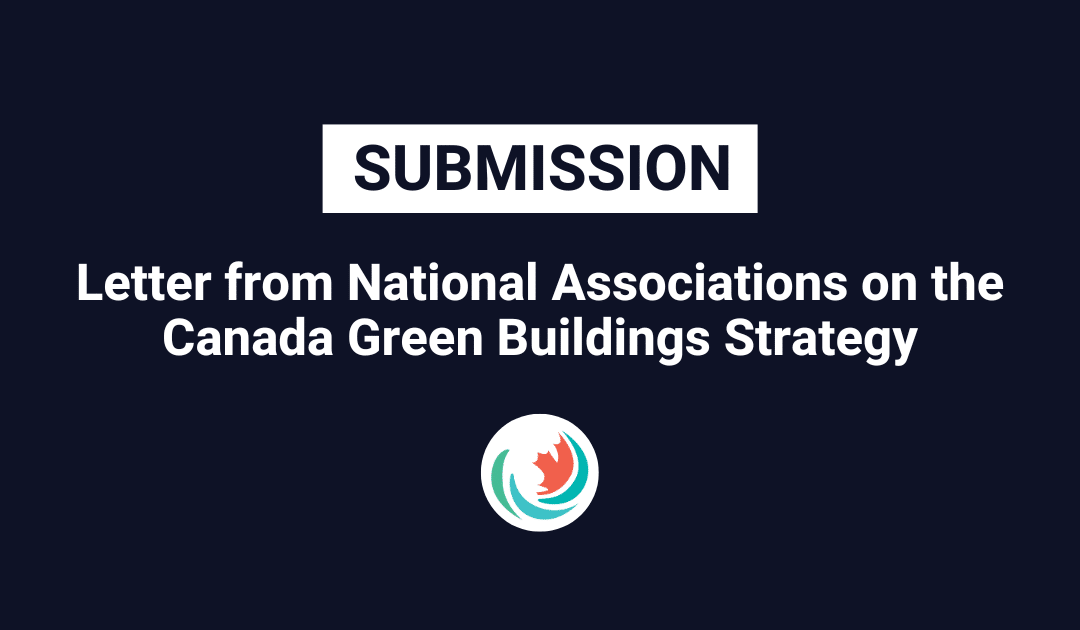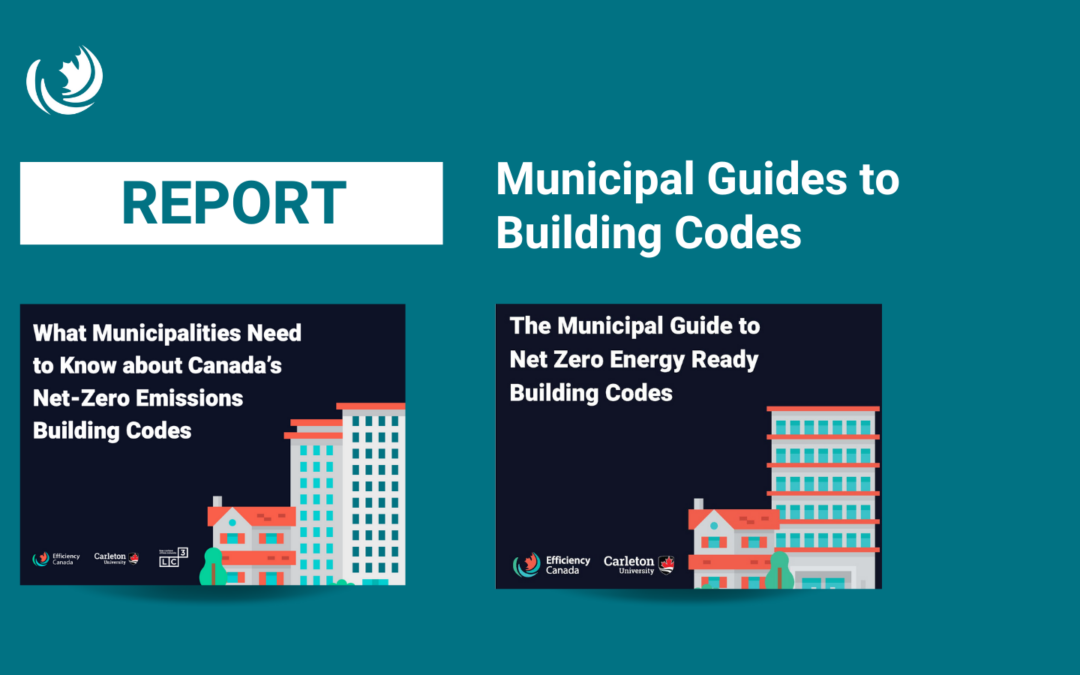Low-income timeline
Progress on Low-Income Energy Efficiency in Canada The following timeline covers federal, provincial and territorial energy efficiency policy progress and milestones in Canada, with a focus on energy poverty and low-income energy efficiency. This timeline is...Low-income timeline – EC Milestones
Progress On Low-Income Energy Efficiency In Canada Efficiency Canada Milestones The following timeline covers energy efficiency progress and milestones achieved through Efficiency Canada’s work, with a focus on energy poverty and low-income energy efficiency....
Letter from National Associations on the Canada Green Buildings Strategy
The national associations’ letter discusses critical feedback points on Canada’s Green Buildings Strategy.

Municipal Guides to Building Codes
Everything you need to understand tiered codes, the advantages of adopting an ambitious tier, and how municipalities can use the new codes to achieve net-zero emissions by 2050.

What Municipalities Need to Know about Canada’s Net-Zero Emissions Building Codes
The Municipal Guide to Net Zero Energy Ready Building Codes contains everything you need to understand tiered codes, the advantages of adopting an ambitious tier, and how municipalities can use the new codes to achieve net-zero emissions by 2050.

